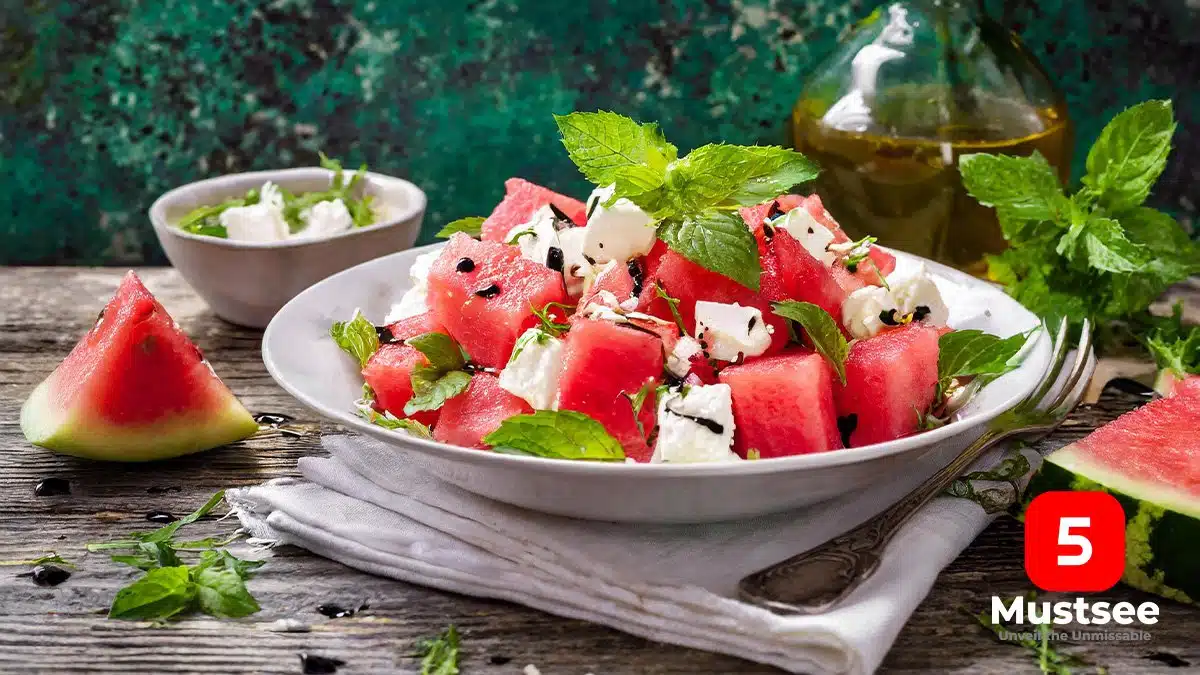
The Children’s Museum of Indianapolis faced online outrage for offering a pre-packaged salad at its Juneteenth event. People found it hurtful and unkind.
Juneteenth commemorates the pivotal moment in American history when the chains of slavery were finally broken, marking the emancipation of enslaved people in the United States. Every year on June 19th, people joyously observe Juneteenth, recalling the historic day in 1865 when the residents of Galveston, Texas, were enlightened about their newfound freedom, sparking celebrations that continue to resonate across the nation. This came two and a half years after Lincoln’s Emancipation Proclamation.
People also know Juneteenth as Emancipation Day, Freedom Day, or Jubilee Day. It’s a period to honor African American history and culture. We celebrate their community achievements and contributions.
In 2021, Juneteenth attained the status of a federal holiday following President Joe Biden’s enactment of a bill into law on June 17th, officially recognizing the significance of this day in American history.
Why is watermelon associated with Juneteenth?
People usually eat watermelon during Juneteenth celebrations. Some sources suggest that watermelon symbolizes the blood shed by enslaved people towards freedom. Red foods also represent resilience, strength, and courage.
Watermelon, a fruit thriving in hot climates, became available and cheap for many African Americans after slavery ended. It offered hydration, nutrition, and pleasure to many freed people, consumed without fear or ridicule.
However, watermelon also has a dark and racist history in America. During the Jim Crow era, white people used watermelon as a way to mock and dehumanize Black people. They portrayed them as lazy, childish, and ignorant in cartoons, advertisements, and postcards that showed them eating watermelon with exaggerated features and expressions. These images reinforced negative stereotypes and justified discrimination and violence against Black people.
What happened at the Children’s Museum of Indianapolis?
The Children’s Museum of Indianapolis:
The Children’s Museum of Indianapolis is one of the largest and most popular museums globally, captivating millions of visitors each year with engaging displays, interactive programs, and exciting events for children and families.
Annual Juneteenth Jamboree:
The museum hosts an annual Juneteenth Jamboree, featuring live performances, community artists, and cultural activities to raise awareness and appreciation of Juneteenth and African American history.
Controversial Juneteenth Watermelon Salad:
This section covers the controversial decision of the museum to offer a pre-packaged watermelon salad labeled as “Juneteenth Watermelon Salad” in its food court. It describes the ingredients and the public’s reaction, which led to outrage and criticism.
Museum’s Response and Apology:
The museum apologized for the oversight, removed the salad from the menu, and explained the decision was based on its food service provider’s family traditions. It acknowledges the insensitivity, pledges to do better, and expresses its commitment to creating a culture of empowerment and inclusivity.
Evaluation and Changes:
This section discusses the museum’s commitment to evaluating the best ways to convey stories and traditions during Juneteenth celebrations and changing how its food service provider selects future menu items.
Commitment to Inclusivity:
The museum reaffirms its commitment to creating a culture of empowerment and inclusivity, highlighting its efforts to share diverse narratives and voices. It acknowledges the need to do better and expresses dedication to continuing this work.
What can we learn from this incident?
The incident at the Children’s Museum of Indianapolis shows that watermelon is still a sensitive and complex topic in America. This situation illustrates that, depending on their backgrounds, perspectives, and experiences, watermelon can carry different meanings and associations for different people.
It also shows that watermelon can be a source of celebration or controversy, depending on how it is presented and interpreted. It shows that watermelon can be a symbol of freedom or oppression, of joy or pain, of pride or shame.
The incident also shows that we need to be more aware and respectful of the history and culture of others, especially when it comes to food. Food is not just fuel but also an expression of identity, heritage, and values. Food can tell stories, evoke emotions, and create connections.
Therefore, we must be more mindful and thoughtful about the food we eat, serve, and share. We must be more curious and open-minded about the food we encounter and learn its origins, meanings, and traditions. We must be more appreciative and supportive of the food we enjoy and celebrate its diversity, richness, and beauty.
Conclusion
Watermelon is a tasty and healthy fruit many enjoy, but it holds a complicated history in America, particularly for Black people. While it’s part of Juneteenth celebrations, it also reminds us of racism and unfair treatment.
The Children’s Museum of Indianapolis faced criticism for serving a watermelon salad on its Juneteenth menu. After the backlash, they apologized and removed the salad. They promised to be more mindful of their food choices and cultural understanding.
This incident teaches us to respect others’ history and culture, especially concerning food. We should appreciate the diversity and stories behind different foods and traditions, fostering understanding and respect.
FAQ
Juneteenth is a vital holiday marking the end of slavery in the United States, observed on June 19th each year. This date, in 1865, signifies the moment when enslaved African Americans in Galveston, Texas, finally learned of their freedom, more than two years after the Emancipation Proclamation. Juneteenth honors African American history, culture, and achievements. It’s a time for reflection on the ongoing fight for racial justice and equality.
Watermelon carries a complex meaning in African American history. It represents freedom and celebration, one of the first fruits Black people could enjoy after slavery ended. The fruit’s resilience is evident as it was used creatively, from making wine to various preserves. However, it also bears a painful legacy, as it was used to perpetuate racist stereotypes. Despite this, many choose to honor its positive associations at Juneteenth events.
The museum’s watermelon salad received criticism for not respecting cultural sensitivities. Called “Juneteenth Watermelon Salad,” it didn’t acknowledge its historical background. The ingredients, like feta cheese and mint leaves, didn’t connect to Juneteenth traditions. Without explaining watermelon’s historical meaning, the salad seemed disrespectful and inappropriate to many
By looking into these avenues, you can gain a deeper understanding of Juneteenth and make it more meaningful. conversations about African American history and culture.
Keep Reading…
Sources:
- Indianapolis Museum criticized for ‘Juneteenth watermelon salad’ item
- Children’s Museum Criticized for Juneteenth ‘Watermelon Salad’
- Children’s Museum apologizes for selling Juneteenth watermelon salad
- The History Behind Watermelon’s Racist Symbolism
- Juneteenth: A Celebration Of Resilience





